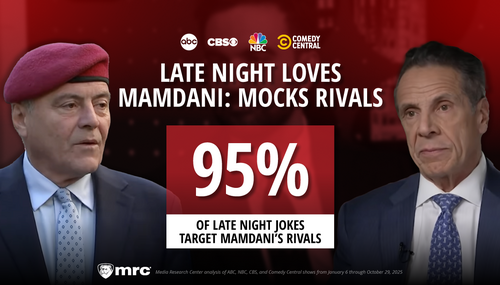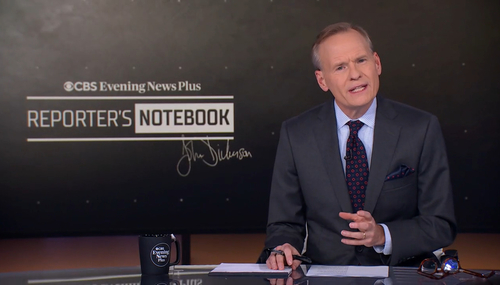The Washington Post's reverence for protests -- the leftist ones, that is -- is clearly on display on the front of Friday's Metro section, with advance publicity for a Saturday "peace" march on the Pentagon starring Ramsey Clark, fresh from his unsuccessful defense lawyering for Saddam Hussein. (That fact is never mentioned in Steve Vogel's article.) On roughly the fourth anniversary of the initial blitz on Baghdad and forty years after the violent "levitate the Pentagon" protests of 1967, the Post splashes photographs down most of the front page of Metro, of 1967 at the top and 2007 at the bottom. The story sprawled out across most of B-3, and included another story by Michael Ruane on Christian "peace witness" at the White House.
Two months ago, the Post gave the March for Life and against abortion a tiny box inside the paper on the day of the rally, complete with "pro-choice" events. That could not be defined as splashy pre-protest publicity.
Vogel's report carried the headline: "Once More to the Pentagon: Demonstrators Evoke Historic Confrontation In Planning March, Rally Opposing Iraq War." At the top of the page, a caption of a 1967 photograph read: "The Oct. 21 march marked a turning point in public sentiment toward the Vietnam War, former attorney general Ramsey Clark says." Clark emerges later in the story as well:
"The 1967 march wasn't the biggest, but in some ways it's the most historically significant because of the target," said Brian Becker, national coordinator of the ANSWER Coalition, the main sponsor of tomorrow's protest. "It represented a shift in public opinion."
In tying their protest to the Oct. 21, 1967, march, organizers say they are capitalizing on a similar climate among angry voters who believe the results of November elections have been ignored.
Ramsey Clark, who as attorney general for President Lyndon Johnson helped oversee the administration's preparations for the march, said that day shifted the ground under the government. "From that moment, I got the feeling that we'd reached a turning point in the commitment of many people to ending the war in Vietnam," Clark said in an interview this week.
Whether today's feelings match those of 40 years ago is another question. Clark will be among the speakers tomorrow. "I can't tell you that we have the depth of passion or breadth of commitment today that we had then," Clark said.
Vogel obviously did not work on this story for a day or two. It reads like a reverent history of the 1967 protest. While it does include testimony from Pentagon personnel who recount the violence and vulgarity of protesters, it elevates the protest into a historical touchstone or turning point, as Clark claimed in the caption. Vogel's second paragraph betrays his attraction to the protesters and their apparently earth-shattering activism:
The 1967 march on the Pentagon to protest the Vietnam War became a touchstone event in American history, one that pitted U.S. citizens against "the true and high church of the military-industrial complex," as marcher and author Norman Mailer put it.
Vogel promotes to Post readers how buses and vans will come from all over to protest. (The same was true of the March for Life, but Post readers weren't told that a few weeks ago):
Buses, vans and caravans from across the United States are coming, organizers say, with veterans, soldiers and military family members marching in the first rank of the demonstration. Heading across the Arlington Memorial Bridge to the Pentagon north parking lot, the demonstrators will follow literally in the steps of the earlier protesters. A counter-demonstration in support of the war is also planned for tomorrow.
Will the counter-demonstrators get their own picture in addition to that measly sentence? They certainly did at the March for Life.
Vogel uses no labels to describe Clark, Becker, the ANSWER Coalition, or any other radical leftist that's quoted. The only references to ideology were vague descriptions of historical perceptions of the 1967 march:
The 1967 march still raises emotions at both ends of the political spectrum. On the left, it is remembered as a time when peaceful marchers were confronted by bayonet-wielding soldiers and beaten. On the right, the march is recalled as a disgraceful event during which military police were subjected to terrible abuse from protesters.
History shows that both views hold elements of truth. Soldiers manning the line in front of the Pentagon Mall entrance were taunted with vicious slurs and pelted with garbage and fish. Some defenseless protesters sitting peacefully were clubbed and hauled off.
In his article on the White House "Christian peace witness," Ruane used the P-word just once:
The event is sponsored by the District-based Sojourners/Call to Renewal, a progressive religious group, along with the American Friends Service Committee, Lutheran Peace Fellowship, Sisters of Mercy of the Americas, and more than two dozen other Protestant and Catholic groups.
Ruane also noted that activist Celeste Zappala, whose son died in Iraq, will be there, and so will Taylor Branch, a Friend of Bill (Clinton) and the author of several books on Martin Luther King Jr.




